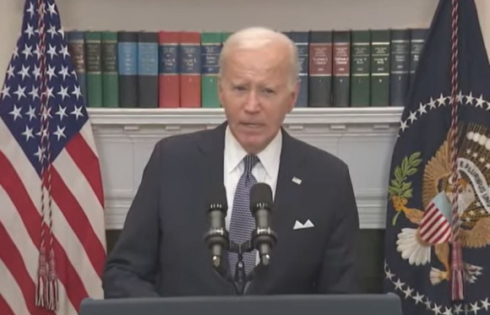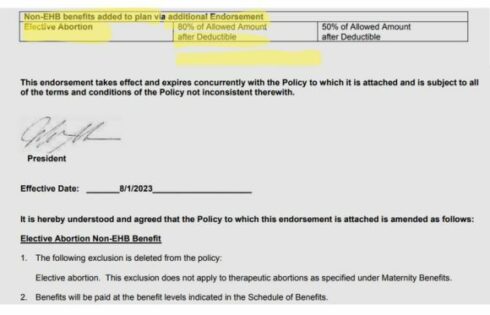
Last year The College Fix reported on a smartphone app, Good2Go, intended to record when two parties mutually agree to have sex and their level of intoxication, if any.
Targeted at the college set, the app received critical media reviews (including from The Fix) that pointed out its unclear policies around sensitive data, confusing user interface and potential to be used as evidence of intoxication-enabled rape by prosecutors or simply campus tribunals.
Now there’s another sexual-consent app suite, We-Consent, that adds a video component similar to a deposition to the process of registering consent: One app records a “yes” conversation with the smartphone camera, while the two “no” apps record a person “watching a message on the phone that clearly states ‘no,'” The Chronicle of Higher Education reports.
Creator Michael Lissack, executive director of the Institute for the Study of Coherence and Emergence, told the Chronicle he’s targeting men’s coaches with his trio of apps, in the hope that college athletes use them:
Put yourself in the role of a coach. … What’s the easier way to make sure that [a sexual-assault scandal] doesn’t happen? You tell your athletes that they are required to use the app. You may have to have discussions with them every few weeks to make sure they’re doing it, but from the peace-of-mind side of the coach who’s worried about scandals and stuff, [part of the job] is teaching [athletes] about what affirmative consent is, how to be much more respectful of themselves and their partners, and how to make better life choices. So again this becomes a tool in the arsenal.
About those videos:
[Lissack] said the videos are encrypted and unhackable; they don’t save onto a user’s phone, but they are stored in an offline database. The only time the videos can be viewed is when there is a legal reason to disclose them, such as a court proceeding or university adjudication. …
Mr. Lissack said he got the idea for the app last fall, during debates about the new sexual-assault policy at Harvard. For Mr. Lissack, “there had to be a better way” to ensure that both people involved had consented to sexual activity.
It’s worth noting that Harvard explicitly declined to adopt the affirmative-consent standard for sex in its new policy, as The Fix reported, because (in the words of its own Title IX officer) “there is no standard definition of affirmative consent.”
So perhaps Lissack can be forgiven for his ignorance of the most important component of providing consent at a campus (including the entire state of California) that uses “affirmative consent” these days: It has to be provided continuously.
Lissack seems to think that having a conversation before sex is good enough to ensure both parties are on the same page.
He appears completely unaware that ongoing consent is the crux of the dispute in the highest profile sexual-assault investigation of the past year, between performance artist-“Mattress Girl” Emma Sulkowicz and accused-but-exonerated student Paul Nungesser at Columbia University (recently reiterated in Sulkowicz’s porn re-enactment of her alleged rape).
No student accused of rape will be safe from discipline – including expulsion and a permanent black mark on their record – simply by using We-Consent, because it’s not intended to record ongoing consent.
As with Good2Go, We-Consent isn’t primarily intended to be used after the fact in a legal proceeding, Lissack tells the Chronicle, which makes the video-recording feature seem superfluous:
So what’s the main purpose? The main purpose is to change the conversation. If these apps work the way they should, in a year or two if people go to a frat party, instead of the base assumption being everyone in attendance is available for hooking up, the base assumption will be, if you wish to hook up, talk about it first.
As students burned by the campus disciplinary process can attest, “change the conversation” is something that appears more likely to happen in the middle of sex, whether they pick up on their partners’ muddled, indecipherable bodily and verbal cues (or lack thereof).
RELATED: Rollout Of Good2Go Sexual-Consent App Greeted By Confusion, Legal Questions
RELATED: Sexual-Assault Report: Yale Uses ‘Hearsay,’ ‘Scarlet Letter’ Against Accused
RELATED: California ‘Affirmative Consent’ Sex Bill Imposes Low Legal Standard For Guilt
Like The College Fix on Facebook / Follow us on Twitter
IMAGE: RogaMuffin/Flickr
Like The College Fix on Facebook / Follow us on Twitter





Please join the conversation about our stories on Facebook, Twitter, Instagram, Reddit, MeWe, Rumble, Gab, Minds and Gettr.